Late in the afternoon, I walked around my uncle’s garden. With each step, I heard the rustling sound of dry leaves breaking. This was a mixed garden. Probably because he was old and no longer had much energy to take care of it, my uncle let many types of plants grow crowded together without any order.
More than half of the trees were old. The oldest was the jackfruit tree, its branches and leaves looked withered, but strangely, around its base hung round, thorny, ripe ram fruits. A moment later, my uncle went to the pond to scoop up rainwater to water the basket of fruit for the ancestors. He pointed to a tiny thatched house like a duck-watching hut with two halves of a faded roof sticking out past the thorny fence that served as a boundary. From a hole in the roof, thin blue smoke like painted lines drifted up. He shook his head in disappointment and sighed:
- That's Teo's family. He has the same last name as me, the same profession but different branches. He's only in his thirties and has already given birth to four children. Both husband and wife are lazy as hell. They're bad at everything. They're the best at giving birth in the village.
Early the next morning, just waking up, my uncle continued talking about that story:
- Strange, Teo's wife hasn't been seen carrying a basket over to my house to borrow rice for half a month. Normally, at least two or three times a month, she would sing about how the four children have been hungry for several days. The husband would spend all the money he had on rice wine. Then she would turn over the basket and promise that her children would pay her back by the end of the month. But at the end of the year, who knows if we'll see the roundness or shape of the rice grains in their house.
After exhaling a cloud of tobacco smoke, his voice dropped:
- And strangely, these past few days I heard people chopping at the chopping board several times a day. The smell of dog meat with plums, the smell of beef stir-fried with celery wafted over here. The husband and wife's quarrels also stopped. Something strange is happening in our village.
Less than half an hour later, the strange thing that my uncle had guessed about rushed through the alley. People shouted in panic: "Hey, villagers, someone's drowning." My uncle threw down his pipe and ran after him. I quickly ran ahead. At the end of the alley, at the turn to the Nguon River embankment, I saw a circle of curious people standing crowded together on both sides of the pond at the corner of the street.
In the middle of the pond, a bald head poked its head up from the dark green water hyacinth, which was being stirred up by a flailing arm. His mouth was spluttering and making grunting sounds as if he was choking on water. The other hand was clinging to the rearview mirror that reflected the bright morning sunlight and was attached to the handlebars of the motorbike that was submerged in the pond.
Many voices were saying: Who is like Teo? Someone argued: Pfft… His family hasn’t touched the bottom of a motorbike for three generations. I jumped into the pond. Then I heard another crash. I recognized the red-haired boy who called Phuong “big brother” last night. With one hand I lifted the head of the victim that was sticking out of the water fern by a few finger joints, and with the other hand I groped down below, discovering that his knees were bent and pressed down into the mud by the whole motorbike.
If the pond was full, he would have drowned. I pushed the front of the bike, the red-headed guy pushed the back, and together we lifted him up by the armpits to sit on the edge of the pond. On Teo's body, the torn shorts that looked like torn clothes and the bright red t-shirt with a foreign band printed on it were now soaked, sticking to his flat chest, looking really funny.
Hearing the commotion, many people exclaimed: It's Teo... it's Teo. Strange. Is that the Teo my uncle mentioned earlier? His head was round and messy, his nose was upturned, and his front teeth were long like rabbit teeth. His appearance was no different from a comedian on the silver screen.
Knowing that Teo had no broken legs or injuries, the two of us slowly pushed the bike onto the road. Putting the kickstand down and roughly brushing away the pieces of duckweed and black mud that covered the bike's body, I realized that the bright red Japanese scooter was still brand new, worth at least forty million.
In the crowd of women and children, Mr. Do waved his stumpy arm and said loudly: “You don’t know how to walk, but you’re still acting like a fool, borrowing a motorbike to ride around. This time, you won’t even have enough money to pay for it, my child.” Mr. Teo, who was sitting there with a pale face, stood up and pointed at Mr. Do: “Hey, stumpy, your father is no longer as ragged as you and your father. This motorbike is broken, so your father threw it away. You stumpy dare to challenge your father to buy ten at once to make everyone jealous?”. If my uncle hadn’t come running to stop them, they would have gotten into a big fight.
Seeing that, the women and children ran away, leaving only a few men at the scene. My uncle told the red-haired guy to help Teo push the bike home. My uncle and I also leisurely went home together. After walking a few steps, we heard Teo calling out in a condescending tone: “You are a real Sai Ghenh native, the son of a general from my family, right? Come to my house this afternoon to eat dog meat.”
"That's all the country folk do to entertain guests, don't complain, little brother." I said yes yes, my uncle didn't answer. He was still mumbling to himself: Oh, I see... I guessed it. No way, no way. I turned around and saw his eyes wide open, his face bewildered and surprised. From that moment on, my uncle kept mumbling that sentence through his teeth all the way home. Sometimes his lips would open wide and not close, just like a crazy person.
After I finished bathing, I went upstairs and saw my uncle holding his water pipe between his knees, his cheeks deeply sunken, his upper and lower lips pulled into the mouth of the pipe. The fire like a red chili pepper was seeping into the hole of the pipe. He was smoking continuously for several cigarettes. It seemed like something had come to mind, his face relaxed and became calm. Then he spoke solemnly as if giving a presentation before a conference:
- That stupid guy, whose kitchen is full of clay pots and broken bowls, has the money to buy a Japanese motorbike. It's strange that he bought it for real. In this village, only a crazy person would lend him a motorbike. There's no way he could win the lottery, because he spent the few thousand he earned on a few glasses of wine. Where did he get the money to buy the lottery? I dare say he dug up a treasure buried in the ground, my dear. There are many strange things in our village's history, I'll tell you slowly.
Suddenly I remembered the time my grandmother sat rubbing hot oil on her knees, groaning in pain and groaning: The land under our village looks so dry but there is a lot of hidden treasure. In the past, Mr. Thien Ho's family was one of the richest families in the country. After the French executed his three sons at the foot of Canh Dieu mountain, that family line died out. The elders still whispered to each other: Where did the family's wealth secretly go that when they fled, the properties left behind were empty, the warehouses, and all the boxes were empty, not a single coin left.
My uncle said: No one has ever heard of Mr. Thien Ho's family name or first name. None of his paternal uncles or paternal uncles are still in the village. An entire family lineage mysteriously disappeared without a trace. Thien Ho means a thousand families. It was a title given to the ancestors of that family since the reign of the king that no one remembers. All we know is that their descendants have enjoyed the benefits of a thousand families for generations. Instead of paying taxes to the king, they paid them to the Thien Ho family. After many generations of savings, the Thien Ho family has become extremely rich. Where we are sitting, the land of this entire village used to belong to the Thien Ho family.
It's a strange story. Our ancestors still tell the story: The year the French invaders occupied Ninh Binh province, in response to the Can Vuong call, the three sons of Mr. Thien Ho recruited a few hundred insurgents along with trusted subordinates and servants in the house to take back the provincial capital. That heroic effort was defeated by the French invaders. The three generals were captured and executed.
The insurgents were scattered. Only a few dozen loyalists managed to return to their villages. At that time, the French had not yet pacified the rural areas. Mr. Thien Ho knew that sooner or later he would be denounced by traitors in order to receive rewards, so he quickly ordered the purchase of dozens of small ceramic coffins and loaded them into several large boats to dock at his village.
Then he spread the news that he had opened a pottery kiln. But after only a few nights, all the graves disappeared. At the same time, new graves with golden soil appeared in the vast fields of Thien Ho's house. After that, the entire Thien Ho family and dozens of trusted followers also secretly disappeared.
Only a decrepit old horse herder remained. Much later, after the August Revolution succeeded, the old man's fourth-generation grandson presented a sealed ceramic tube to the provincial revolutionary government. He said that his ancestor had left it behind with instructions not to open it.
Only when the opportunity arose for the country to rise up and fight the French, would it be handed over to the leader. No one saw what was inside the ceramic tube. All we know is that later a government working group came to the village, they divided into several teams, each team brought a yellowed piece of paper to look at, measure, and draw, then dug up many ceramic urns, it is said that the number was about a hundred, and brought them back to gather in the communal house yard.
At that time, the village guerrillas were on very tight guard. Even though he was still very young, they did not let him near them. Then they loaded the ceramic urns onto a car and took them to an unknown location. Later, the villagers rumored that on that day the government had confiscated a lot of gold and silver that Mr. Thien Ho had buried everywhere.
The old man's fifth-generation grandson joined the revolution from that time. He is still alive, the oldest in the village but still clear-headed. Whenever anyone asks about the past, he just smiles mysteriously. Now, in his house, he still keeps a certificate of merit from the Provincial Administrative Committee recognizing the great contributions of his family. He has retired for a long time. His rank is also high. On important national holidays, the provincial government still respectfully drives to the village to invite him to attend.
I remember my grandmother once told me: The year the American invaders dropped hot air bombs on the North, the whole village, young and old, participated in digging trenches around the commune. Mr. Ta from Go Chua hamlet dug up a ceramic jar containing fifty silver bars as big as a big toe. He brought it to the government. He was highly rewarded by his superiors, but he only received a certificate of merit and the money that came with it, he donated to the commune committee to use as a relief fund.
Someone told him: You fool, you don't know how to keep what God gave you. Mr. Ta replied: What is God's gift? It's the will of Mr. Thien Ho's family to contribute money and property to the government to fight the French. If you don't contribute, don't be greedy for that sacred silver. I asked him if this story was true or if you were just hallucinating your old age. He said: It's true. Mr. Ta was hit by a bomb and died at night while transporting a boat carrying ammunition across the Nguon River, about a few months after he handed over the silver jar to the government.
Up to this point, my uncle stopped and slapped his thigh: How silly. I didn't think of it. It's exactly like Teo dug up Mr. Thien Ho's silver jar. Last month, my uncle said to him: Your family has a very valuable Lien Phong areca tree. These days, people often look for this type of areca tree for weddings.
A few hundred thousand for a bunch, not a small amount. If you want to produce many bunches of areca, you have to dig the roots down about a meter and a half deep. Leaving it hanging like that won't yield even one fruit. His wife calculated that a dozen bunches of areca would cost a few million, enough to feed the whole family for half a year.
So she forced her husband to dig up the areca tree. Half a month later, seeing the areca tree collapsed and wilting, he asked why he didn't prop it up and cover it with soil, it would be a waste to let it die. She laughed: I'm too busy. But there's a single areca tree, money is nothing. It stands precariously in the middle of the garden and is an eyesore. Do you like to take it home and plant it? So it was exactly under that areca tree that she found a treasure. Her land, her land and a few dozen adjacent households were lands that Mr. Thien Ho had abandoned long ago. During the land reform, the government granted it to them.
My uncle was not the only one who thought so. Everyone in Diem village thought that Teo and his wife had dug up some money. Someone asked bluntly, but he only vaguely replied: God's treasure is not easy to find. Then he winked, held hands intimately and pulled him into a bar to treat himself to a few glasses of cold beer. After the drinking session, he took out a brand new five hundred thousand dong bill from his bulging wallet, pinched the waitress's cheek and grinned: I'll give you the extra money. This was a godsend opportunity, and the pretty waitresses put their arms around Teo's shoulders, stroked his shirt and pampered him, no different from a rich man from the city returning to the village.
The families who had the same land origin as Mr. Thien Ho in the past believed that Mr. Teo had dug up a pot of gold. Because they were all anxiously hoping that there were pots of gold hidden underground in their houses. Without anyone telling them, every night, father and son were holding hoes and sharp iron skewers, silently poking here and there. Whenever they heard the tip of the skewer hit something hard, they would sweat and dig and dig hurriedly. When they lifted up a broken brick or a piece of laterite with their own hands, they would slump down into the mouth of the hole, gasping for breath as if they were about to die. Some families dug up fruit trees that were decades old, and without finding anything, they still eagerly poked them into the bottom of the rainwater tank and dug and dug until the bottom of the tank broke in half and collapsed, almost causing a fatal accident. Another story about a family's orange garden with a total of dozens of trees in full bloom with young fruits that promised to yield several hundred kilograms this Tet, and if they sold them right at the garden, they would probably have a surplus of tens of millions, but they were also dug up by the roots. The consequences were that the gold and silver pots were nowhere to be found, the oranges were withered, and the wives wanted to commit suicide. Yet the husbands had not yet recovered from their drunkenness over the ingots of metal. They calculated that Mr. Ta had dug up the silver pot that year, which proved that the government had not excavated it all, or that the genealogy of Mr. Thien Ho had left behind was still missing. So they explored their own garden, and crossed the fence to the garden next door. So much so that in the middle of the night, a fight broke out, cursing loudly. If it had not been for the fence, they would have jumped over and smashed hoes on each other's heads. In this fever, Teo also got into a funny and sad situation. The thing is, Teo's garden was adjacent to the garden of the grandson of Mr. Pho Ket, a famously mischievous character in Diem village. Until now, every descendant of Mr. Pho Ket had more or less inherited his genes. Some people were even more humorous and witty than their ancestors. For several nights in a row, Pho Ket's father and son dug hard but found nothing. In their frustration, they discovered someone lurking around watching and spying, so they thought of a dirty plan. That night, on the other side of the fence, Pho Ket's father and son whispered: It's the right time, what now? Let's take him inside the house and open it. On this side, Teo was curious and nervous, crawling half his body across the fence to listen. Then... boom... A bucket of stinking human feces was poured on his hair, ears and face. Teo got angry: "Fuck the whole Pho Ket family". On the other side, they laughed heartily: "I gave you a whole pot of gold and you're just trying to curse your father?". The next day, the whole village knew about it. Whenever Teo sat down at a shop, they would mock him: Where did the smell of feces come from?
At the end of Diem village, there is a small hamlet far from the crowded residential area. It was originally the land of the Cai Tong Cau family. In 1954, Tong Cau's entire family migrated to the South. Co Bo had been a buffalo herder for generations. During the land reform, Co Bo was actually given three kitchens with Western-style tiles and an adjacent garden from his old master. With a few acres of rice fields and a house, Co Bo was over thirty years old when he got married. Co Bo's wife was as dry as a tree, and it took several years for her to give birth to the current Co Bat. As a child, Co Bat struggled for six or seven years without passing the third grade. He also had a habit of repeating himself and not being able to speak a single sentence clearly, so he was ashamed to drop out of school and stayed home all day catching crabs and catching shrimp in the fields. After his parents died, Co Bat abandoned his fields and made a living by fishing and shrimping. In the past ten years, the fields have used a lot of chemical fertilizers and pesticides, the rivers are crystal clear and there is not a single crab or shrimp left, Co Bat turned to work for a farm owner somewhere who sells thousands of pigs in pens. The wages Co Bat received were only enough for his wife and children to have two meals a day. Suddenly, his life changed right when Teo bought a motorbike worth tens of millions. The story is like this, last year's Tet, two of Tong Cau's nephews from the US came back to visit their hometown and stopped by Co Bat's house. The two cousins walked around the garden and then came to the old plum tree, which was so old that it had not produced any fruit for a dozen years. Co Bat wanted to cut it down several times, but his wife said it would be to give her children shade to gather and play. That day, the two overseas Vietnamese walked around the garden, whispering to each other in English for a long time. When they reached the old plum tree, they bent down to examine each blade of grass, then gnawed their feet to see if the ground was still firm. When getting in the car, the older sister asked: Do you want to sell this garden? Wait until we come back to negotiate next time. Then they said goodbye, leaving Mr. Co standing motionless, full of doubts. Until the day he heard that Teo had dug up a pot of gold, Mr. Co Bat woke up in the middle of the night, hugged his wife and shouted: Our family is rich now. Wait, I will sell it to you, come back and eat the dirt. His wife thought he had gone crazy and was trembling with fear.
When the neighbors saw that Co Bat's plum tree had died and withered, and saw traces of digging and filling in the soil around the tree, they were suspicious but could not come up with any clues. One day, a neighbor saw Co Bat's wife taking her children to the district town to buy many new clothes. Then every day, the clothesline across Co Bat's yard was hung with red, green, yellow, and purple clothes like a fashion counter in a supermarket. They could only guess that Co Bat had dug up gold, nothing specific. But then one night, Co Bat's house was robbed, and the thugs could not take anything when Co showed them a credit card worth fifty million VND. Besides, they only had a bunch of clothes, which they did not want. So the news that Co Bat had dug up gold spread throughout the commune. This time, Do cut came. Knowing that Do cut was a big shot in this area, Co Bat confessed that he had dug up a jar of antiques under the old plum tree. The origin of the house of the Chief of Cau that year was probably hidden when he migrated. That stump asked: Who to sell to? Co Bat said something like: The owner of a gold shop in town. Then asked: What kind of things? A lot. All porcelain. I only heard them vaguely talking about Song, Ming, Kangxi, Qianlong or something. That stump slammed his fist on the table: “Fuck! He tricked you. That pile of stuff is worth billions of dong and can’t be used up”. Hearing that, Co Bat repeated: “Fuck… Fuck… that… that…”. That stump got impatient and said in a harsh voice: “That fucking… that… that… stupid, you eat shit. Is there any left?”. Answered: “No… the broken pieces… then… there’s still… there’s still.” Then Co Bat led That stump to the plum tree and dug up a pile of shapeless porcelain pieces. That stump sat down and painstakingly assembled two porcelain bowls as thin as eggshells, telling Co Bat to put them all away and then figure it out. A few days later, Do cut off brought along a man wearing gold-rimmed glasses, a pipe hanging down from one side of his mouth. He held a magnifying glass the size of a bowl and examined the pile of broken pieces, nodding and pouting. After a long while, he said: “What a pity, they’re all broken. All the enamel from the Ly and Tran dynasties is extremely rare. If they were intact, just these two bowls from the Ly dynasty would be worth more than fifty million. I don’t know what to do with these broken pieces. You two should take three million as payment for the trip. If you dig up more, remember to let me know.”
As the customer was about to leave, carefully putting all the broken pieces into the briefcase he had brought, Co Bat suddenly angrily pulled out a machete and foamed at the mouth: "You... you... give... that gold shop owner a stab". The customer calmly said: "I've known about this deal for a few days now. That gold shop owner was only given fifty million. They've already transferred more than a billion to the Taiwanese. Don't be foolish enough to mess with that pack of wolves or you'll lose your life".
I overheard these stories one evening while some war veterans were drinking tea and chatting at my uncle's house. The oldest confirmed: The Tong Cau family had an ancestor who held the position of Royal Censor under two kings in the capital. He must have brought that ancient porcelain jar back from Hue. Another old man sighed and exclaimed: It's only been a few decades, but why are people now so different from us?
VTK
Source


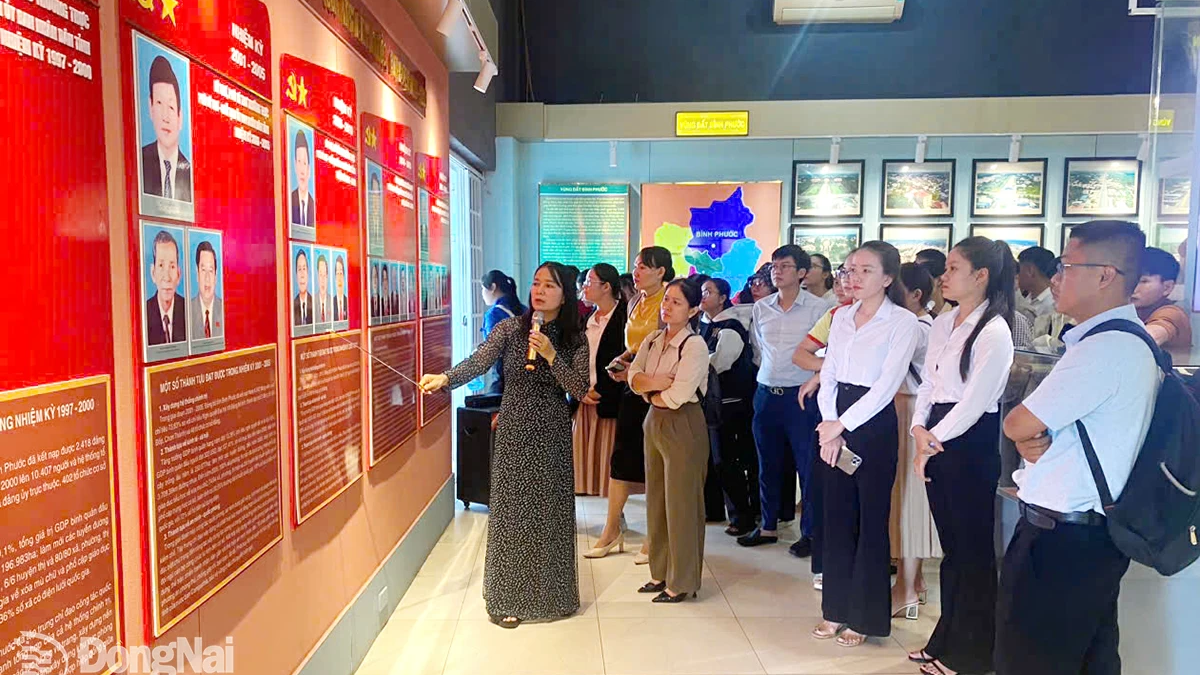
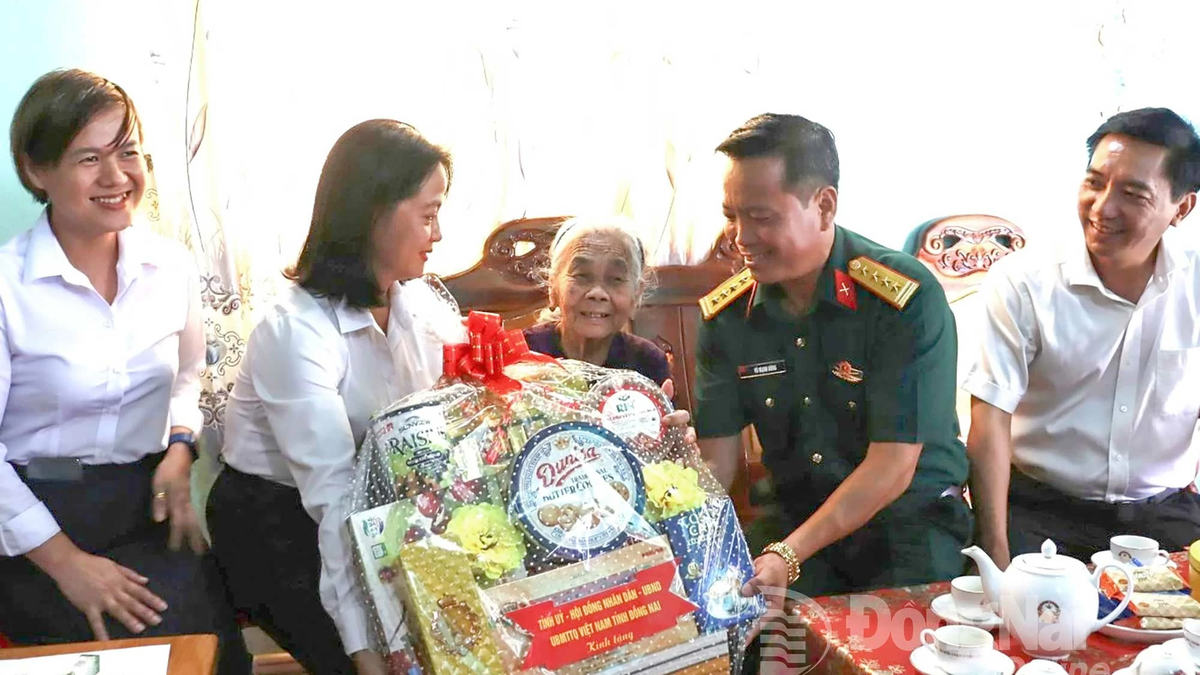



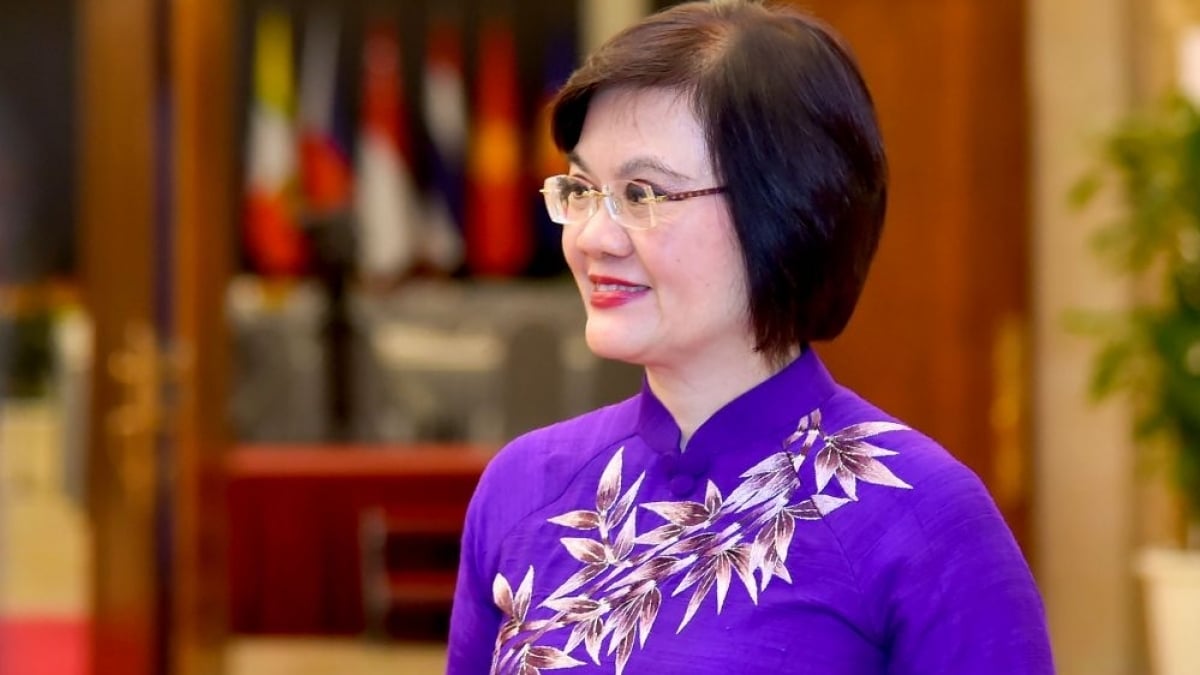


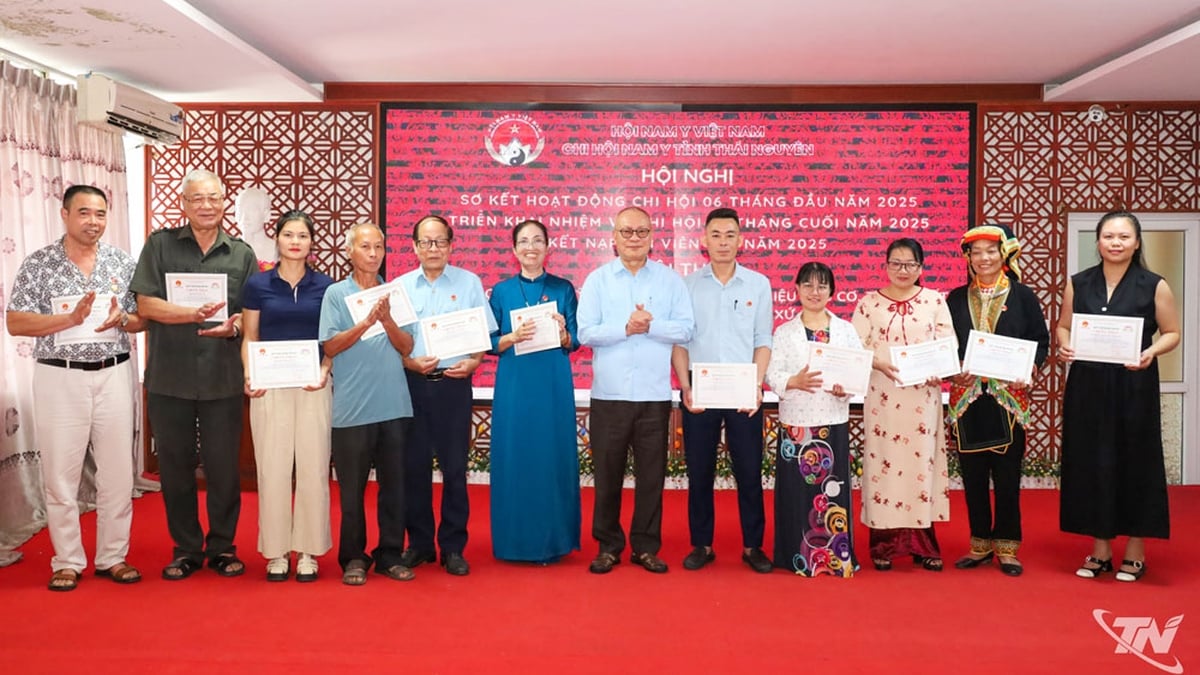


















































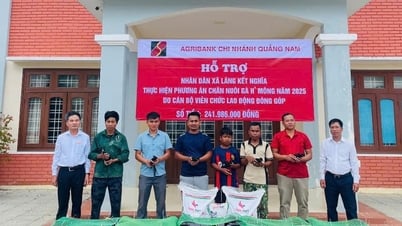






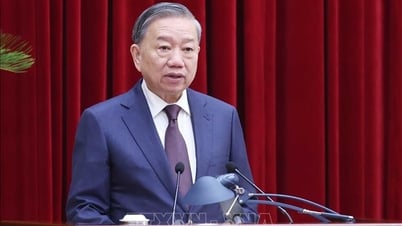






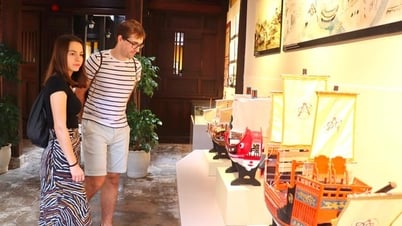

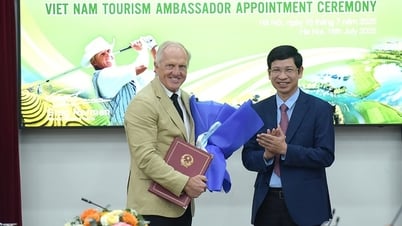



















![[Infographic] In 2025, 47 products will achieve national OCOP](https://vphoto.vietnam.vn/thumb/402x226/vietnam/resource/IMAGE/2025/7/16/5d672398b0744db3ab920e05db8e5b7d)





Comment (0)